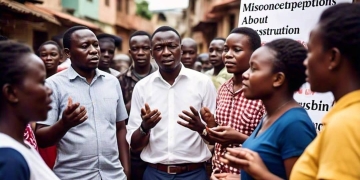
The Ugandan government has unveiled plans to scrap automatic merit scholarships for government-sponsored university students, amidst concerns that the current system disproportionately benefits children from wealthy families. Daily Monitor first published this story.
According to documents seen by the Daily Monitor, the government proposes replacing the automatic scholarship system with a merit-based grant scheme, dubbed the National Excellence Scheme. The scheme will target top performers at the Uganda Advanced Certificate of Education (UACE) level or its equivalent.
Educationists and policymakers have welcomed the move, saying it will create a fairer system where bright but financially disadvantaged students can access higher education.
“The government is shifting from scholarships to grants, where students will have to apply for financial support,” explained Brighton Barugahare, commissioner of the Education and Research Department. “We are ending the practice of giving students what they do not want. Some students would be awarded scholarships for education courses but later switch to engineering, as their parents can afford the costs.”
The proposed changes aim to address growing concerns that the current system favors students from elite schools in urban areas, particularly in Kampala, Wakiso, and Mukono. These students often receive government sponsorships despite their families being able to afford higher education.
Makerere University’s Deputy Vice Chancellor for Academic Affairs, Prof Buyinza Mukadasi, praised the proposal, saying it will ensure that scholarships go to deserving students. “For quite a long time, the public has raised concerns about the government scholarships because those benefiting have been coming from rich families who can afford education.”
The Public Universities Joint Admission Board (PUJAB) has expressed readiness to put in place a verification team to ensure that the best students with economic hardships receive these scholarships.
Dr. James Nkata, vice chairperson of the Public Universities Forum, equally welcomed the proposals. “The government is going in the right direction because the scholarships were meant to help the bright poor. The students currently admitted were coming from high-profile schools like Gayaza and Namilyango, whose parents can afford education at the expense of the bright students from rural schools.”
Legislators, including Deputy Speaker Thomas Tayebwa, have long advocated for the abolition of automatic scholarships. Mr. Tayebwa argued that the current system perpetuates inequality in education access between children from rich and poor families.
To address this, the government plans to expand support to include graduate students, establish regional universities, and create a National Research Fund to promote research and innovation.
Other proposals include promoting Science, Technology, Engineering, and Mathematics (STEM) programs, addressing gender imbalances, and offering student loans to financially needy students.
However, not everyone is convinced. James Kubeketerya, chairperson of the parliamentary Education Committee, cautioned that abolishing automatic scholarships could discourage hard work among students.
“Previously, we did not have private sponsorships; students who failed to secure government scholarships were required to repeat their studies. When private slots opened up, students who did receive scholarships would privately sponsor themselves. This scheme has promoted hard work among students. Removing it will not encourage diligence,” Mr. Kubeketerya said.
The proposed policy changes are expected to be presented to the Cabinet and Parliament for approval.
In related developments, the government plans to establish centers of excellence for specialized education and training, support higher institutions in delivering research and innovation to communities through Knowledge Transfer Partnerships (KTPs), and regulate private higher education institutions to meet national human capital needs.
The move to reform Uganda’s higher education sector comes as the country seeks to improve its human capital and economic competitiveness.
Only time will tell if these changes will achieve their intended goals.










Discussion about this post